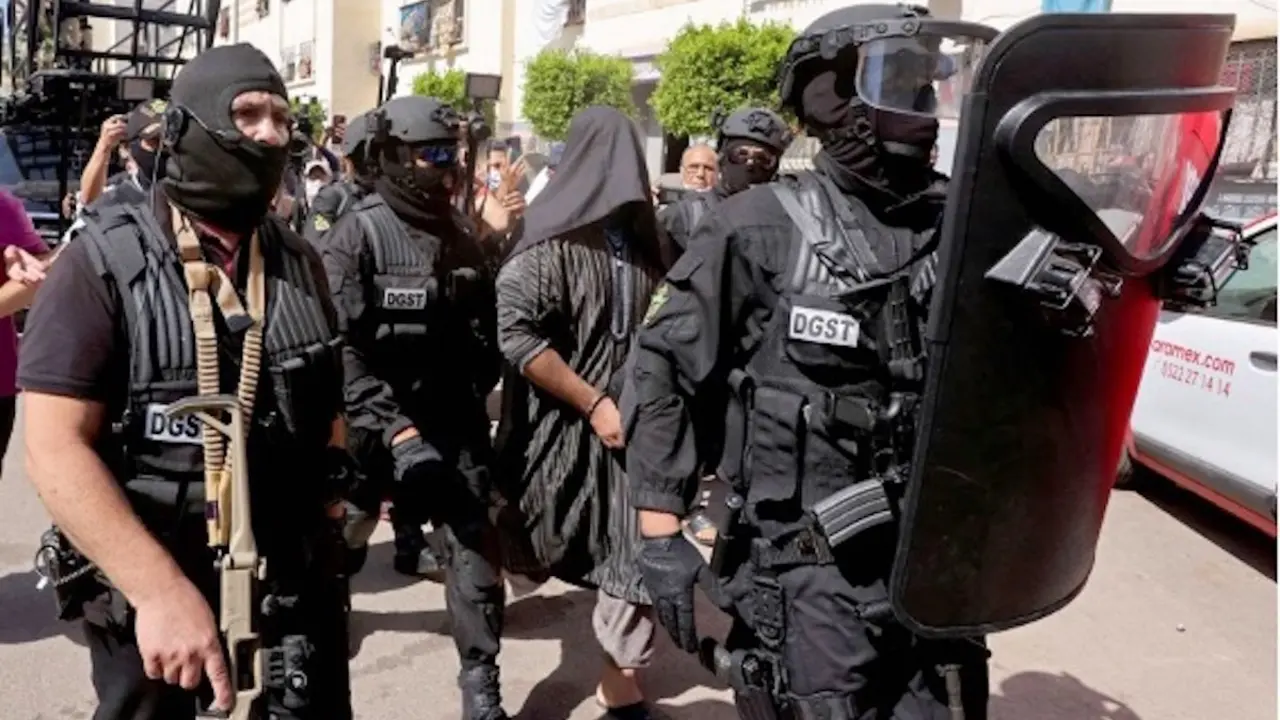Ukraine catches its breath and regains territory in the vicinity of Kiev

President Zelensky's chief adviser, Mikhail Podolyak, is clear that there will be no 'Afghanisation' of the war in Ukraine, that the conflict will not run aground and that it will not be a long and exhausting one for Russia. What the chief negotiator of the Ukrainian delegation has predicted is that Moscow will abandon all territories except the southern and eastern flanks, and from there entrench itself, setting up its air defence to reduce losses and dictate the terms.
Podolyak is well aware of the situation. The Ukrainian president's right-hand man has been at the forefront of talks with Moscow from minute one, defending Kiev's positions. At the Istanbul talks, Podolyak and his team renounced Ukraine's NATO membership in exchange for defence guarantees, and extracted a "scaling down" of Russian military operations in the cities of Chernobyl and the capital Kiev.
But more than a diplomatic victory for Ukraine, this is perhaps a strategic concession by the Kremlin. The Russian army has suffered thousands of casualties since the start of the invasion - the latest estimates put the death toll at around 14,000, as yet unquantified - and has made little significant progress on the northern front, where it has been met with stiff resistance from Ukrainian forces, who have regained ground on the outskirts of Kiev.

Despite the partial withdrawal of Russian troops in the vicinity of Chernobyl and Kiev, as promised by Moscow's negotiating team, NATO has warned of a regrouping of forces on the eastern and southern fronts, areas where the Russian Defence Ministry redirected the operation after having ensured the completion of "the first phase" of the conflict. A phase marked by logistical problems, poor preparation of soldiers and demotivation among their ranks. Syrians and Chechens have had to assist their forces.
On Saturday, the Ukrainian government announced the capture of more than thirty towns near the capital, such as Bucha and Brovari, previously occupied by Russian forces, and also assured that the enemy troops had withdrawn their positions from the Antonov airport in Gostomel, where they had been holed up. This was announced by presidential spokesman Oleksii Arestovich, who made it clear that "tough battles" remain. "Let us have no illusions. There is still heavy fighting in the south, for Mariupol, for the east of Ukraine," he said.
It is precisely the southern front that has been hardest hit by the invasion. Moving up from the annexed Crimean peninsula, Russian forces seized the only occupied oblast capital to date, Kherson, and laid siege to the cities of Zaporiyia, Melitopol, Mykolaiv and Mariupol, the latter still under the control of the local authorities. But the port city on the Sea of Azov has been under siege by the Russian army for weeks.
?? #Ukraine Los combates en Mariupol continúan.
— Atalayar (@Atalayar_) March 29, 2022
?️La lucha urbana ya se inició hace semanas, y deja imágenes como esta.
?Un combatiente ucraniano falla su tiro de misil antitanque que rebota contra la torre de un T-72B. pic.twitter.com/h8UhwBt3ZX
Its capture has been delayed for weeks in the face of stiff Ukrainian resistance. If it falls into Russian hands, it could be a turning point in the conflict, as its control would give Putin the ability to establish an extensive corridor connecting Crimea to the Russian-controlled Donbass, from where he could seize the eastern part of the country. Moscow aims to achieve this in the coming months, which would strengthen its position at the negotiating table.
Of the 15-point draft, which the Financial Times reported a few weeks ago and which was discussed this week in Istanbul, the territorial issue remains unresolved. The Russian negotiating team demanded recognition of Russian sovereignty over the Crimean peninsula and the 'liberation' of the Lugansk and Donetsk oblasts. For Kiev these are unacceptable conditions, and it has shown its readiness to defend every inch of its territory. A ceasefire seems a pipe dream. Negotiations are contingent on what happens on the battlefield.
Ukraine might even have attacked on Russian territory for the first time since the invasion began. Russian Defence Ministry spokesman Igor Konashenkov on Friday reported several alleged Ukrainian air strikes in the town of Belgorod, close to the border area. The offensive is said to have hit a fuel storage facility, causing heavy smoke but no casualties. Kiev was quick to deny responsibility for what could be a false flag attack.

Ukrainian President Volodymir Zelensky said on Friday during an interview on the American channel FOX News that not admitting Ukraine into NATO "is a mistake, because if we join NATO, we make it much stronger". The former actor and comedian turned statesman said that Ukraine "is not a weak state" and that he does not propose to make his country stronger at the expense of the Atlantic Alliance, but to be a "complement" to strengthen the organisation.
"I believe that we are one of the most important components of the European continent," said a convinced Zelenski, who accepted just a fortnight ago that the door to NATO is closed to Ukraine, renouncing membership during negotiations. The image shown by Ukrainian forces has motivated the president to flex his muscles, but he took the opportunity to call for missiles and aircraft. "Give me something to defend my country with", he insisted.
The Ukrainian president received the President of the European Parliament, Roberta Metsola, in Kiev. "Courage, strength and determination. With Zelenski in Kiev. Long live Ukraine", she tweeted. The Italian, the first leader of a European institution to travel to Ukraine, held a meeting with Zelenski and his prime minister, Denis Shmigal, to whom she conveyed her commitment to promote the country's candidacy to join the European Union, a hypothetical accession that Moscow would not veto.








